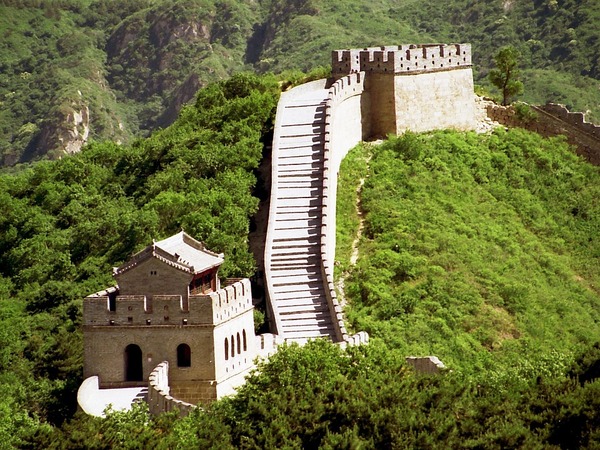
Satoshi Nakamoto—A Japanese name conveying “wisdom” and being of “central origin.” What if that name was meant to conceal the true origins of bitcoin and blockchain technology? After all, Americans are notorious for confusing differences amongst Asian cultures.
If you take the first and last letters of both the first and last names, you get S-I-N-O, meaning “of or related to China.” This may seem like quite a stretch until you recognize the dominant position of China in the Blockchain World. Consider that China:
- Controls 72 percent of bitcoin mining power.
- Owns two-thirds of blockchain patents, while having applied for 48 percent of blockchain patents compared to only 21 percent by the United States.
- Has a national policy that supports blockchain initiatives and has included blockchain in its current 5-year plan.
- Is the home of 25 percent of all new blockchain projects (according to Blockdata).
- Is the largest fintech market in the world, accounting for 46 percent of all fintech, and is home to four of the world’s ten largest fintechs.
How could China have invented blockchain? After all, China doesn’t innovate; all they do is copy. Right? Wrong. First, Nakamoto, whoever he was, did not invent blockchain; rather, he took previously existing technologies and put them together in a novel way to unleash their full potential. Second, China’s specialty is taking existing technology and scaling it, and scaling is the biggest challenge facing blockchain today. That is what China has done with mobile payments, a U.S. invention that is now greater in China by a factor of 50.
Top Chinese Blockchain Companies
As a result, we have compiled our list of top Chinese blockchain companies in the following areas: Investments (made), Technology (patents), Funding (received), and Investment Opportunities.
Investments
With regard to investing, the top four most active investors over the last five years only focus on blockchain. They are led by Fenbushi Capital, founded in 2015 with the purpose of accelerating the growth of the blockchain economy. At one time, Ethereum co-founder Vitalik Buterin was a partner, but he began transitioning to an advisory role in January of 2018. Its recent investments have included bioXroute Labs ($3.45M), LongHash ($1.49M), and Dispatch Labs ($6M). After Fenbushi, there is a three-way tie for second amongst LD Capital, JRR Capital, and Node Capital.
Technology
In the realm of blockchain patents, two e-commerce giants, JD.com and Alibaba, are currently dominating the field. JD.com (NASDAQ: JD) has applied for over 200 blockchain patents while Alibaba has applied for 262. After those two, there is a significant drop down to the third and fourth with Tencent (internet-related products and services) having applied for 80 patents, and Baidu (search engines) for 50. According to IP Center of China, in terms of their measure of global blockchain patent strength, JD.com ranks first, Alibaba second, with Tencent and Baidu coming in 7th and 15th respectively. Within blockchain, JD.com is focusing on value innovation, fintech, trusted networks, digital evidence storage, and supply chain.
Funding
According to CB Insights, the top three companies in terms of funding received are Bitmain (Mining Hardware) at $450 Million, Hyperchain (DLTs and Enterprise Blockchain Tech) at $250 million, and Jixin Blockchain (digital wallets) at $100 million. There is a significant drop-off after the top three, with the next two, Newtime Trade and Canaan, coming in at around $50 million.
Investment Opportunities
Blockforce Capital’s NASDAQ NextGen Economy China ETF (BCNA) enables US investors to enter the Chinese Blockchain Market. According to Blockchain Investing News, the top three companies in this fund are Hundsun Technologies (software products and services) with a weighting of 3.66 percent. It has a partnership with smart contract provider Symbiont and has a founder of Alibaba Group Holdings as a key investor. The second is Tencent Holdings, whose anti-fraud blockchain service Tencent BaaS addresses tax fraud. The third is Heilongijang Agriculture, which focuses on real estate, land contracts, and agriculture, including a recent foray into hemp processing. Other top companies in the fund are focusing on insurance (Ping at #4), banking equipment (GRG at #5), fintech (JD.com at #6), and payments (Alibaba #7 at 3.19 percent weighting).
Differences between China and the West

It is important to understand the differences between blockchain in China vs. the West. At Bitcoin Market Journal, we see three major differences: Altcoins vs. Industry Use Cases, Centralization vs. Decentralization, and Markets vs. Ecosystems.
Altcoins vs. Blockchain Technology in Industry
In the West, despite a growing interest in enterprise use cases, blockchain is still closely tied to bitcoin. As bitcoin rises and falls, so does the rest of the blockchain industry. In fact, not just bitcoin but any major coin, even one that doesn’t yet exist like Libra, can send reverberations throughout the entire industry.
Although China has banned ICOs, the President, Xi Jinping, supports the underlying technology of blockchain. China has managed to separate altcoins from blockchain technology, thus encouraging a wide range of industry use cases, supported through blockchain hubs.
In China, regulators approved 197 blockchain companies while only approving one altcoin project. The companies to be regulated by the Cyberspace Administration of China (CAC) include Alibaba, Tencent, and Baidu. According to EO (a Beijing-based think tank), there are 615 blockchain companies in China with half being focused on fintech.
The United States has no official blockchain policy and only within the last six months has it issued an official policy on artificial intelligence, even though the Chamber of Digital Commerce has called for a National Action Plan for Blockchain.
Centralization vs. Decentralization
It seems that philosophically, the decentralized nature of blockchain with its libertarian roots would be in opposition to Chinese governmental philosophy. According to Chinese Official Xu Hao, the unique Chinese brand of blockchain is about disintermediation, not decentralization, because there will always be a central authority in China.
Chinese blockchain focuses on the value of transparency and immutability with the key benefit of reducing expenses by eliminating middlemen and their associated fees. However, unlike typical Western blockchains, Chinese regulations allow for government access to stored data, the true identities of uses, and requirements that participants adhere to censorship laws. Although Western blockchains can run the entire gamut of centralized/permissioned to decentralized/permissionless, Chinese practices clearly differ from Western practices that allow for greater personal privacy and freedom from censorship.
Markets vs. Ecosystems
“Speed is the Essence of Warfare. Take advantage of the enemy being unprepared, and attack where they are not fortified against you.” – Sun Tzu
According to a research collaboration between Wharton and the SWIFT Institute, whereas the United States focuses on markets, in China, the focus is on developing entire ecosystems.
China has created blockchain “sandboxes” to support companies in the development of blockchain technology by providing facilities, licenses, financial aid, and other services. Further, China has built an ecosystem around mobile phones in which users may download user-friendly apps to perform a variety of payment functions.
In the United States, the development of blockchain infrastructure is largely dependent on the financial strength of key players within each industry. In terms of the potential for industry disruption by blockchain technology, this lack of government support is a key factor preventing many industries from reaching their full potential.
Recent Blockchain Highlights from China
In 2018, the majority of China’s fintech investment came from Alibaba spinoff Ant Financial raising $14 billion for its mobile payments service. At $150 billion, Ant Financial is currently the highest valued fintech in the world, with its Alipay platform serving as the world leader in mobile and online payments. Globally, the second-largest deal also came from China when Baidu spinoff Du Xiaoman Financial raised $4.3 billion.
Guide to Doing Business in China

U.S. blockchain companies have tremendous opportunities to do business in China, but they must develop specific Chinese strategies that include:
- Working with local companies.
- Contributing to the ecosystem.
- Aligning with Chinese corporate partner(s) to navigate the environment and make the appropriate connections.
However, in Chinese industries that are not as mature as their Western counterparts, such as financial services, the lack of both regulatory constraints and entrenched incumbents, which existing regulations are typically designed to benefit, has resulted in technology companies, such as Ant Financial and Tencent, taking e-commerce market share from traditional business.
The majority of Chinese transact on mobile phones, and 34 of the top 100 fintech companies are focusing on payments. When combining laissez-faire attitudes toward blockchain with world-class financial technology, and an educated, tech-savvy, and under-banked population, the result is a clearly dominant global position in fintech.
Typically, the developing world is the place to see the true impact of emerging technology, but in the case of China, we can see the result of an underdeveloped market perfectly poised for explosive growth in blockchain.
Conclusion
“The ultimate achievement is to defeat the enemy without fighting.” – Sun Tzu
At Bitcoin Market Journal, our articles are geared toward you, the investor, but this article needs to also be read by politicians in the United States and Europe. It should serve as a wake-up call that it is time for the West to no longer fear this technology but rather to embrace it.
Regardless of your opinions on isolationist policies and protectionist tariffs, blockchain is one area in which the United States needs to follow China’s lead and create an environment that is supportive of the underlying technology while deviating from China’s complete ban on all altcoins.
For those who have justifiable intellectual property concerns, blockchain technology can serve as a powerful tool to prevent counterfeiting by providing a clear record of ownership and authenticity and protecting the interests of both individual artists and large corporations. By promoting standards for global enforcement of intellectual property, blockchain can encourage Chinese compliance with copyright laws.
In this emerging industry with exponential growth, the game is not zero-sum; rather, companies in the United States and China can work together to grow the pie so that everyone can profit. With regard to how this may play out, consider one final quote from Sun Tzu:
“Which ruler has moral compass? Which General has ability? Which side has favorable climate and terrain? Where is leadership most effective? Which army is strongest? Whose officers and soldiers are the best trained? Who best understands the use of reward and punishment? The answers to these questions tell me who will succeed and who will be defeated.” – Sun Tzu
For more cutting-edge research on the global impact of blockchain technology, subscribe to the Bitcoin Market Journal newsletter.

